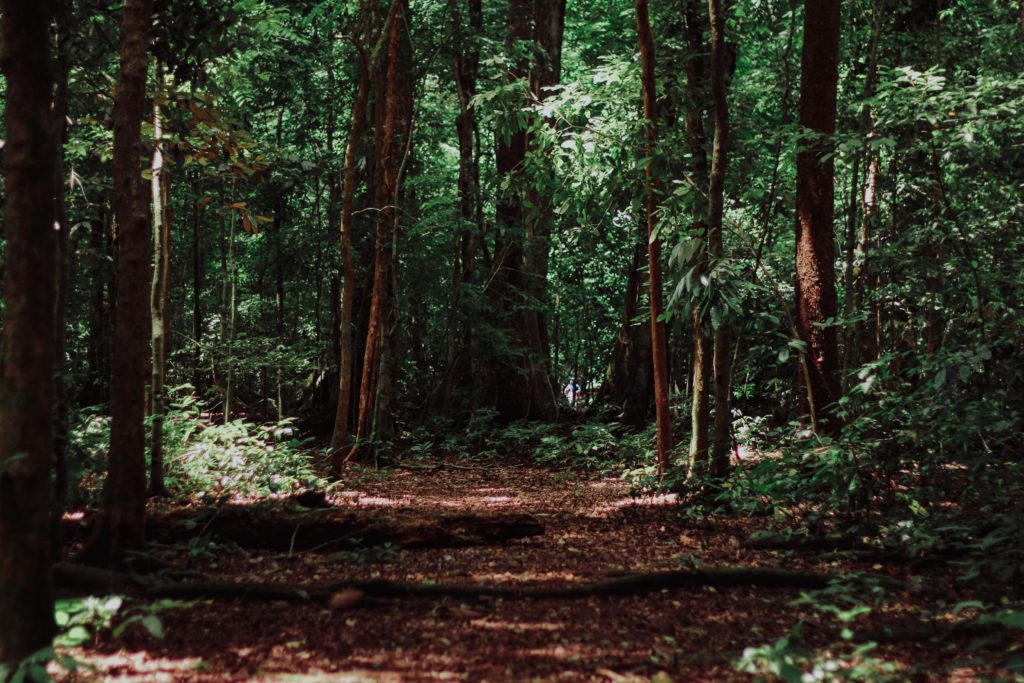Each month in our Nature Sacred blog we share insight from leaders and ideas advancing what it means to have sacred, open green spaces in our cities.
Forest Bathing, or shinrin-yoku, is the act of strolling through a forested area with intention. This activity, originating in Japan nearly 40 years ago, seems to have been one of the top phrases of 2015.
What is "forest bathing?" #NatGeoExplorerhttps://t.co/1MsWgIpDvJ
— Nat Geo Channel (@NatGeoChannel) January 5, 2016
Public interest is for good reason. Walking through a forest has been shown to improve immune function for as much as 30 days after a forest visit and may be partly due to a chemical released in the air from some trees, called phytoncides1. Through various methods, scientists have documented other positive responses to the natural environment. Spending time in nature, even a small urban park, can lower blood pressure, direct attention, improve immune system health and contribute to positive emotions and mindsets2,3.
For researcher Frances Kuo, the ability for nature to boost immune response in chemotherapy patients is an area of research we must further explore. In her research, Kuo examines the effect of natural exposure on the immune systems of chemotherapy patients to see if it is possible to boost immune functioning.
In a recent conversation with Nature Sacred, Dr. Kuo shared her path of discovery and hopes for future research4:
“In the course of looking into the connection between how well cancer patients are doing in different modes of therapy, and what if any contact they are having with nature, I began to read more about stress and immune function. It is extremely well documented how important our mental health is for healing. And knowing what I do about nature benefits, the connection was astoundingly obvious. The hope is that people in later stages of cancer, who need higher doses of radiation but in doing so leads to lowered immune function or even death, can also receive nature therapy and increased immune function accordingly.
The lesson I personally take from my research (besides how important green spaces are) is that my mental state is just as important as my physical health. Psychoneuroimmunology research says overwhelming that if you run yourself ragged you are undermining your physical health. Look for those moments of the day that give you respite or calm and remember it is not self-indulgent. Taking a walk or spending time in a park isn’t pampering yourself. It is not the equivalent of a bubble bath; it is the equivalent of a vitamin.”
-Dr. Frances Kuo
——

